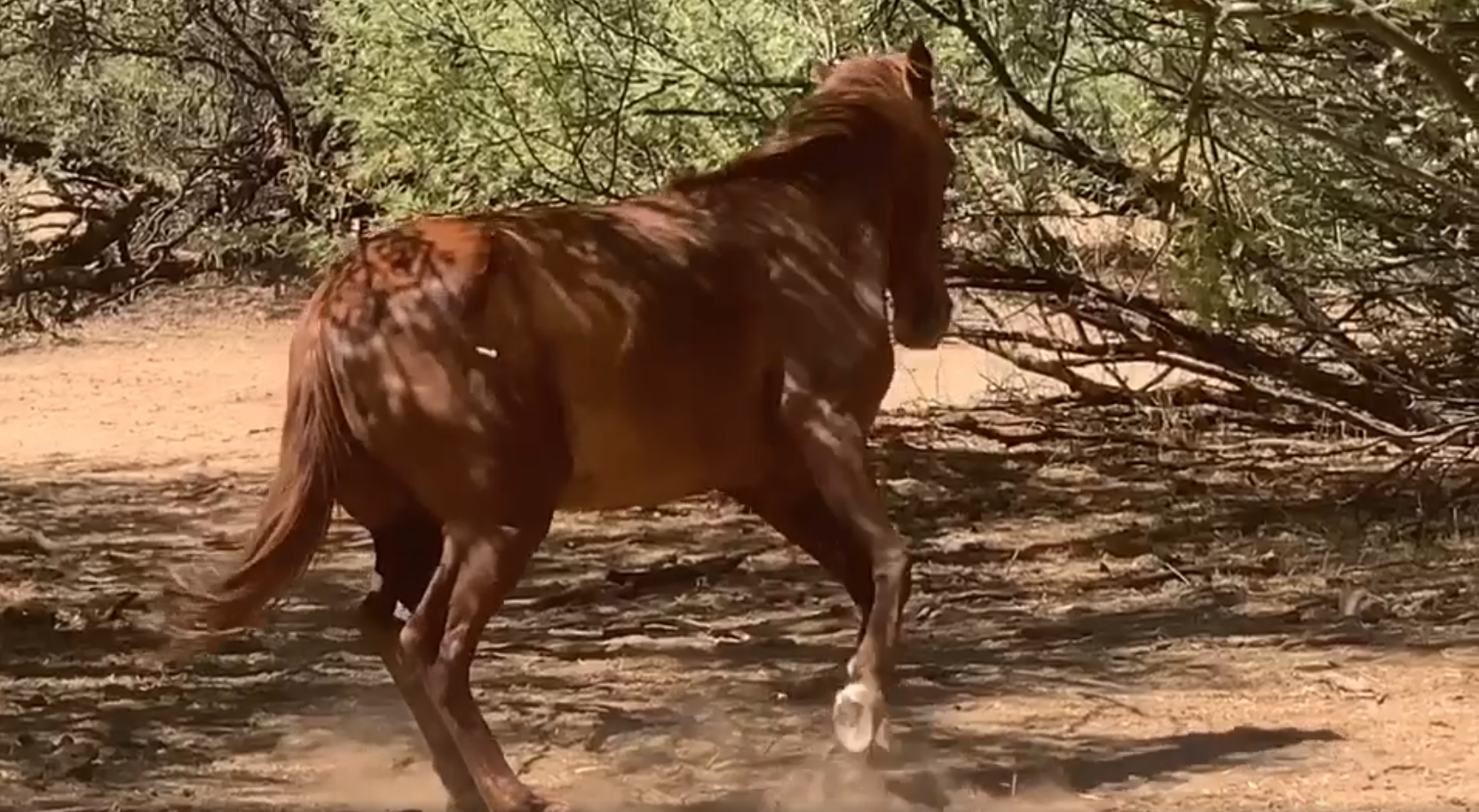
Aiming to keep them wild and free.
August 21st @ 2PM
Our certified darters are out and about several times per week to keep our groundbreaking PZP fertility control program right on track.
Here is an example of what we do, in slow motion. This is Patsy, a beautiful 15 year old light chestnut mare. Patsy is Pacman’s mother (see our website for more info on rescued foal Pacman) and she has had consistent foals every year. All of her foals except for Pacman are still in the herd, so she has made a significant DNA contribution to the Salt River Herd. Because she usually gives birth in March, she was one of the first mares we darted when the program was first authorized at the end of 2018.
The first dart a mare will get consists of a primer. The second dart, one to two months later, is called a booster. She received her booster in January of 2019 and both darts were during her pregnancy. In March of 2019 she had a healthy foal we named Presley. He is doing great and will stay with his mom until he is approximately 1.5 to 2 years old.
Then in November of 2019 she received her second booster; this booster is to remind her immune system to keep preventing fertilization. Patsy did not become pregnant and did not have a foal in March of 2020. This enabled her body to stay in much better condition than she was in previous years.
This video is of her third booster, given this week of August 2020, so that she will not have a foal in 2021. As you can see Patsy is happy and healthy and she doesn’t think the dart is too big of a deal, even after 4 times of being darted!
While this is only our first year of results, our program is exceeding and meeting every expectation. Mares are healthier, they all have remained with their bands, their foals are extremely healthy, and of the very small 2020 foal crop (13 foals), all foals are surviving so far, which is extraordinary. (There is a normal death rate of foals in their first year of 25% to 30%)
Compare the 13 foals this year to over 100 foals last year of which 83 are surviving. All of the 13 foals came from mares who were already pregnant when we darted them, meaning, the dart was just too late. (Some bands were hiding in far away places) It also means that so far the efficacy rate of PZP on the Salt River mares is 100%.
The doctor who invented this brilliant humane way of controlling the birthrate, Dr. Jay Kirkpatrick, sadly passed away in 2015, but he is going to continue to make a difference far into the future ; the future of all wild horses everywhere.
We are very optimistic that we can hit our target of only 5 to 10 foals for 2021, because this year is already far less work than last years 2 darts per horse. Thank you Dr. Jay Kirkpatrick and Dr John Turner, and thank you to the Science and Conservation Center for continuing to produce PZP at an extremely reasonable cost and thank you to our Ag Department the AZDA who made this program possible.
This program IS the reason they are still here.
Please share as the example for humane management of wild horses everywhere.
